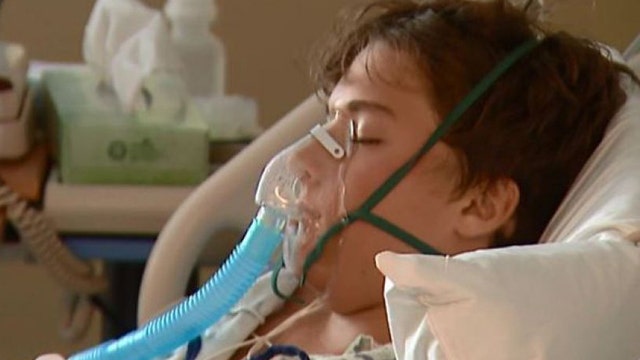CDC, Colorado probe virus-related paralysis in children
Health officials investigate respiratory illness
U.S. health officials are investigating at least 10 cases of children in Colorado who developed limb weakness or paralysis after testing positive for a respiratory virus, state health officials said on Monday.
Of the 10, four children tested positive for Enterovirus D68 (EV-D68), a virus that is causing severe respiratory infections in 40 U.S. states and the District of Columbia.
From mid-August to September 26, 2014, the U.S. Centers for Disease Control and Prevention or state public health laboratories have confirmed a total of 277 people infected with the virus, according to the CDC website.
Dr. Larry Wolk, chief medical officer of the Colorado Department of Public Health and Environment, said some of the children have been ruled out for Enterovirus D68 infection and others are awaiting test results.
All of those experiencing limb weakness have recently been diagnosed with either some form of enterovirus or rhinovirus, two large classes of common viruses that cause respiratory infections. The common cold, for example, is caused by a rhinovirus.
"Just because it's not specific for D68 doesn't mean it's not another, similar virus," Wolk said.
"There is a very high number of kids who have viral respiratory illness this time of year," he said, adding that limb paralysis is "a rare complication of all of these viruses."
The CDC is investigating the cases and asking other states whether they are also are seeing higher than normal cases of limb weakness associated with a respiratory virus infections, according to its website.
"It's obviously not just D68 in and of itself," Wolk said. "The question is, is there something else that ties these 10 cases together."
All of the children in the Colorado cluster are under 21, and most live in the Denver area. Of those involved, six have been discharged from the hospital. Nine of the 10 were treated at Children's Hospital Colorado in Aurora.
Magnetic resonance imaging (MRI) scans of all 10 cases show lesions in the spinal column. Symptoms range from weakness in arms or legs to total paralysis of a limb, Wolk said.
The CDC said it is focusing its testing efforts on cases in which people develop severe respiratory illness, although it is likely that many more people with milder symptoms are infected with the virus.
Enterovirus D68 is one of more than 100 non-polio enteroviruses, a group of viruses that cause 10 million to 15 million infections in the United States each year.









































